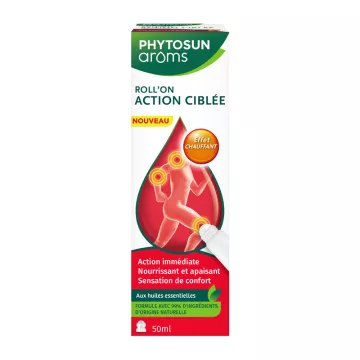Soin-et-nature respects your privacy Our site uses cookies to ensure that it functions properly and to optimise technical performance. For more information information and/or to change your preferences, click on the "Settings" button.


What is muscle soreness and how does it manifest itself?
Muscle soreness is a sensation of muscular pain, often perceived as stiffness or increased sensitivity in the muscles. Contrary to popular belief, they are not exclusively linked to physical exercise. They can arise from a variety of situations, such as prolonged poor posture, stress or certain viral diseases. Affected areas may feel tense and sensitive to touch, making certain movements uncomfortable.
What are the main causes of non-sport-related muscle soreness?
Aches and pains not directly linked to physical activity can have a number of causes:
How to relieve muscle soreness?
There are several ways to relieve muscle soreness:
Can non-sport-related muscle soreness be prevented?
Preventing aches and pains often involves adopting a healthy lifestyle and becoming more aware of your body:
When should you consult a healthcare professional?
It is advisable to consult a healthcare professional if aches and pains:
Can aches and pains be a sign of something more serious?
Yes, in some cases, aches and pains can indicate a more serious underlying medical condition. If accompanied by symptoms such as fever, extreme fatigue, unusual weakness, or skin rashes, they could signal illnesses such as fibromyalgia, autoimmune disorders, or even serious infections. It's essential to consult a healthcare professional if you notice such symptoms accompanying your muscle pain.
Can supplements help prevent or relieve muscle soreness?
The use of certain supplements can help prevent or relieve muscle soreness. For example, vitamin D, magnesium and potassium are known for their role in muscle health. However, it's important to take a balanced approach and consult a healthcare professional before starting any supplement regimen, especially if you have pre-existing medical conditions or are taking other medications.
Does hydration really have an impact on muscle soreness?
Yes, hydration plays a crucial role in preventing and relieving muscle soreness. Muscles need sufficient water to function properly and to facilitate the circulation of nutrients and the elimination of waste products. Insufficient hydration can lead to increased muscle tension and susceptibility to muscle soreness. Drinking water regularly throughout the day is therefore essential.
How does stress affect muscle soreness?
Stress can have a significant impact on muscle soreness. When we're stressed, our bodies are in a constant state of tension, which can lead to involuntary, sustained muscle contraction. This prolonged tension can eventually manifest itself as muscle pain. Stress management techniques such as meditation, yoga or deep breathing can help release this tension and reduce associated pain.
What role does diet play in preventing muscle soreness?
A balanced diet plays a key role in preventing muscle soreness. Foods rich in antioxidants, vitamins (such as vitamin D and vitamin C) and minerals (such as magnesium and potassium) can support muscle health and reduce inflammation. Incorporating high-quality proteins, green vegetables, fruits and whole grains into your diet can help strengthen muscles and prevent muscle soreness.